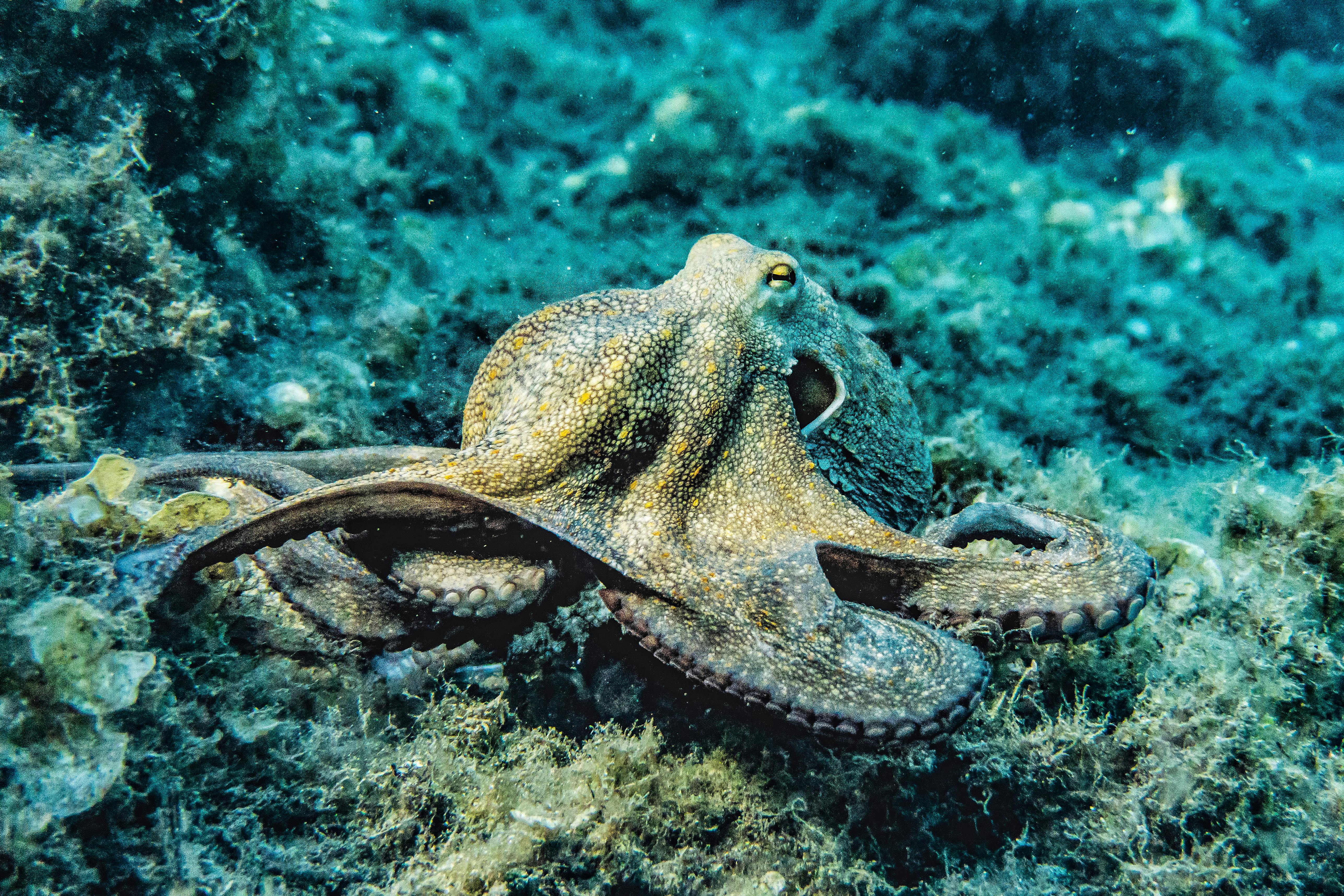Decoding the Mysterious World of Octopus Intelligence
Diving into the oceanic depths reveals a world teeming with life, from vibrant coral reefs to elusive deep-sea creatures. One such marine inhabitant stands out for its remarkable intelligence and complex behavior— the octopus. This article ventures into the fascinating world of octopus intelligence, shedding light on their cognitive abilities, communication methods, and how these oceanic geniuses continue to captivate scientists and animal enthusiasts alike.

A Glimpse into the Octopus’s Past
The octopus, belonging to the cephalopod family, has a unique evolutionary history spanning over 500 million years. Originating from a snail-like ancestor, the octopus diverged onto its path, developing traits that set it apart from other marine species. Their evolution endowed them with advanced cognitive abilities, extraordinary camouflage skills, and a complex nervous system, making them one of the most intelligent creatures in the aquatic world.
The Intellectual Giant of the Ocean
Recent studies have unveiled remarkable findings about the octopus’s intellect. Their brain structure is unlike any other, with two-thirds of their neurons residing in their tentacles. This decentralization of the nervous system allows each arm to operate semi-independently, a feature unique to the octopus. They have demonstrated problem-solving capabilities, curiosity, and even playfulness—traits typically associated with higher mammals. For instance, octopuses have been observed opening jars to access food inside, indicating their ability to use tools—an indication of advanced cognitive functioning.
The Art of Octopus Communication
Octopuses have a unique way of communicating, primarily through visual signals. Their skin contains special cells called chromatophores that allow them to change color and texture instantaneously, which they use for camouflage and communication. Scientists are still unraveling the complexities of this communication method, which might be more sophisticated than previously thought.
The Market Impact of Octopus Intelligence Research
In a world increasingly driven by artificial intelligence and robotics, the octopus has become a source of inspiration. Their dexterity, flexibility, and problem-solving skills are being studied to develop advanced robotics and AI systems. Although it’s difficult to estimate the exact market value of these innovations, the global robotics market is expected to reach a staggering $74.1 billion by 2023, a portion of which can be attributed to octopus-inspired innovations.
The Future of Octopus Intelligence Research
The scientific community’s interest in octopus intelligence continues to grow, with new research projects continually emerging. These studies not only aim to understand the octopus better but also to gain insights that could potentially revolutionize technology, medicine, and our understanding of intelligence itself. However, researchers must tread carefully to ensure the ethical treatment of these complex creatures during experiments.
The octopus, an invertebrate, has challenged our perception of intelligence and cognition. Their extraordinary abilities have not only enthralled scientists but have also captured the imagination of animal enthusiasts worldwide. As we continue to unveil the mysteries surrounding octopus intelligence, one thing is clear—the octopus is a testament to the diversity, complexity, and sheer wonder of life on Earth.




